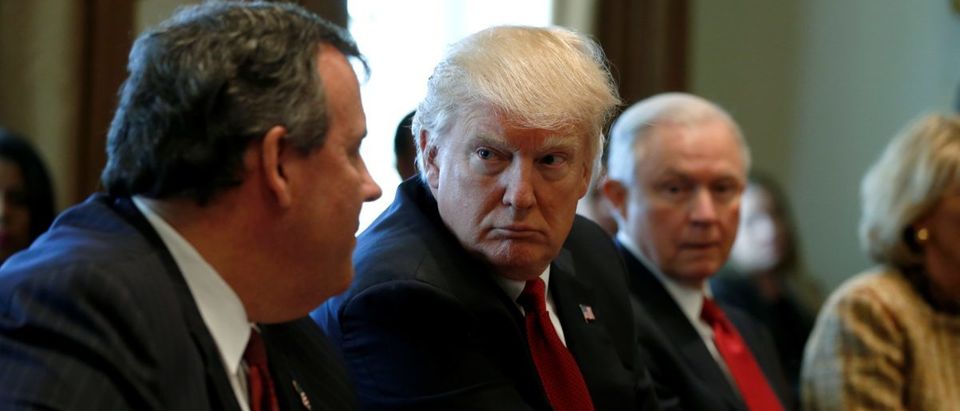The White House commission on opioids delivered their final report to President Donald Trump Wednesday, offering 56 recommendations on how the government can tackle the crisis.
Republican New Jersey Gov. Chris Christie, who chaired the commission, challenged Congress Wednesday to “step up” and approve the funding necessary to confront the epidemic, noting the opioid crisis is now claiming 175 lives every day. The final report recommends changes to insurance rates around painkillers to discourage, rather than encourage prescribing opioids as a first option for pain, reports NJ.com.
The commission also calls for the expansion of drug courts to every federal jurisdiction in the U.S., which focus on drug treatment and rehabilitation rather than only criminal penalties. Additionally, the report recommends forcing prescribers to go through special opioid training before they can renew their license to handle controlled drugs with the Drug Enforcement Administration.
Despite the litany of proposals listed in the report, critics are upset over a lack of federal funding. Christie, however, said the burden to find proper funding for the crisis falls to congress, not the president.
“It’s incumbent upon Congress to step up and put money in the public health emergency fund,” Christie said, according to NJ.com. “The commission is now handing, and the president is now handing, the baton to Congress. Our people are dying. This is an attack from within. We are killing ourselves. It is unacceptable from my perspective not to step up.”
Trump created the Commission on Combating Drug Addiction and the Opioid Crisis through an executive order March 29 and tapped Christie to lead the efforts. In an interim report given to Trump July 31, the commission implored him to declare the crisis a national emergency.
After infighting over the national emergency recommendation, Trump declared the crisis a “public health emergency” Oct. 26, giving states hit hard by opioid addiction flexibility on how they direct federal resources to combat rising drug deaths. Unlike the national emergency declaration, a public health declaration does not grant added funds to the states to deal with the crisis.
Data from the National Institute on Drug Abuse released Sept. 7 predicts that the addiction epidemic in America will continue to deteriorate, pushing drug deaths to an estimated 71,600 in 2017. If the estimates prove accurate, 2017 will be the second year in a row that drug deaths surpass U.S. casualties from the Vietnam War.
All content created by the Daily Caller News Foundation, an independent and nonpartisan newswire service, is available without charge to any legitimate news publisher that can provide a large audience. All republished articles must include our logo, our reporter’s byline and their DCNF affiliation. For any questions about our guidelines or partnering with us, please contact licensing@dailycallernewsfoundation.org.


